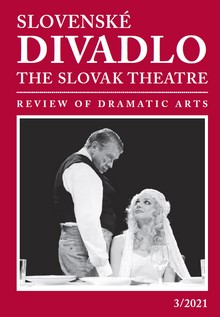RETHINKING DRAMA IN THE CRISIS OF DELIBERATIVE COMMUNICATION: THE RADICAL THEORY OF MARTIN BUBER AND GUSTAV LANDAUER
RETHINKING DRAMA IN THE CRISIS OF DELIBERATIVE COMMUNICATION: THE RADICAL THEORY OF MARTIN BUBER AND GUSTAV LANDAUER
Author(s): Jan MotalContributor(s): Klára Škrobánková (Editor)
Subject(s): Theatre, Dance, Performing Arts, 19th Century, Pre-WW I & WW I (1900 -1919), History of Art
Published by: SAV - Slovenská akadémia vied - Ústav divadelnej a filmovej vedy SAV
Keywords: drama; theatre; post-politics; stage design; actor; poetry; communication;
Summary/Abstract: The article presents the basic elements of Gustav Landauer’s and Martin Buber’s thinking on theatre and drama. It shows they are rooted in the late 19th-century critique of language (Sprachkritik), trying to overcome the representational function of language. The author searches for shared elements in both thinkers’ philosophies: an integral idea of human personality (inner necessity), spirituality as a superpersonal unity tending towards a communitarian vision of the people, and so on. While Buber emphasizes the unity of opposites, or the union of the characters in the drama while preserving their differences, Landauer focuses on achieving unity with the ancestors and the cosmos through an inner immersion. Both direct their theory of drama towards political meaning. This paper proposes that their concept of drama can be used to rethink communication, transcending the post-politics of consensus, as it preserves difference in unity.
Journal: Slovenské divadlo
- Issue Year: 69/2021
- Issue No: 03
- Page Range: 290-306
- Page Count: 17
- Language: English

